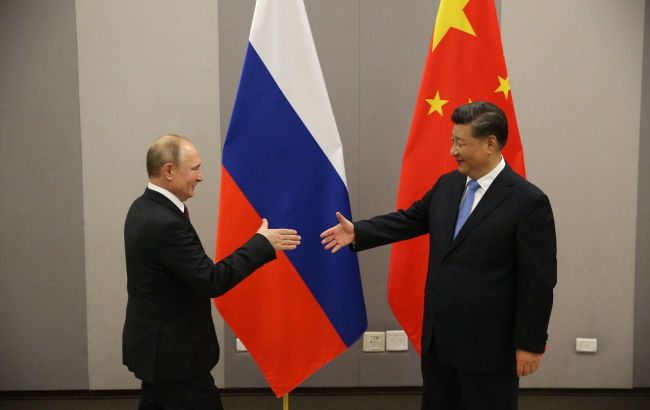Russia's Luna-25 crash threatens space partnership with China, Bloomberg
 Photo: Xi Jinping and Vladimir Putin (Getty Images)
Photo: Xi Jinping and Vladimir Putin (Getty Images)
The crash of the Russian spacecraft Luna-25 on the Moon is not just a setback in Vladimir Putin's attempt to overcome sanctions related to the war. The failure could raise doubts in the mind of China's leader Xi Jinping - Putin's partner in the construction of the Moon base intended to challenge the United States and their space allies, reports Bloomberg.
The Russian spacecraft aimed to be the first to land near the South Pole of the Moon, where a joint base was anticipated, as announced by the space agencies of China and Russia in 2021, and they had agreed to build it together.
Wu Yanhua, the chief designer of China's major deep-space exploration project, led a delegation to Russia's Far Eastern Eastern Cosmodrome to witness the launch and discuss deepening cooperation between the space programs of the two countries.
Now, with the mission ending in failure, reports of the accident in Chinese media have been very rare, and the official news agency "Xinhua" published only a brief five-point statement on Sunday.
Luna-25 became the first Russian spacecraft to attempt a landing on the Moon since the collapse of the Soviet Union.
Russian space decline
Russia’s space program has stagnated because of corruption, mismanagement, and sanctions, said Bruce McClintock, head of the RAND Space Enterprise Initiative and a senior policy researcher at the RAND Corp. "For Russia, this is really bad," he said. "This was their long-awaited, near-last chance to regain any credibility when it comes to outer space exploration."
After the invasion of Ukraine last year, Chinese media downplay Russia's role in the lunar base.
Unlike Russia, China has succeeded in its own attempt to outpace others on the Moon, becoming the first country to land a spacecraft on the far side of the celestial body in 2019. Four years later, the rover of that mission, Yutu-2, remains active.
China openly acknowledges that Russia has limited value as a space partner, said Pavlo Luzin, a senior fellow with the Jamestown Foundation and a space policy analyst.
"China is not interested in cooperating with Russia because Russia can provide nothing to China," he said.
According to Luzin, although the Russians intended to synchronize their lunar missions with China's for more efficient resource utilization, as the two countries worked on creating their joint base at the South Pole of the Moon, that's no longer an option.
"There was an opportunity for synchronization but currently it’s just impossible," Luzin said.
The disaster in Russia gives India, China's biggest Asian rival, the opportunity to be the first to land on the Moon's South Pole. India's Chandrayaan-3, launched last month, is set to make a landing attempt this Wednesday.

